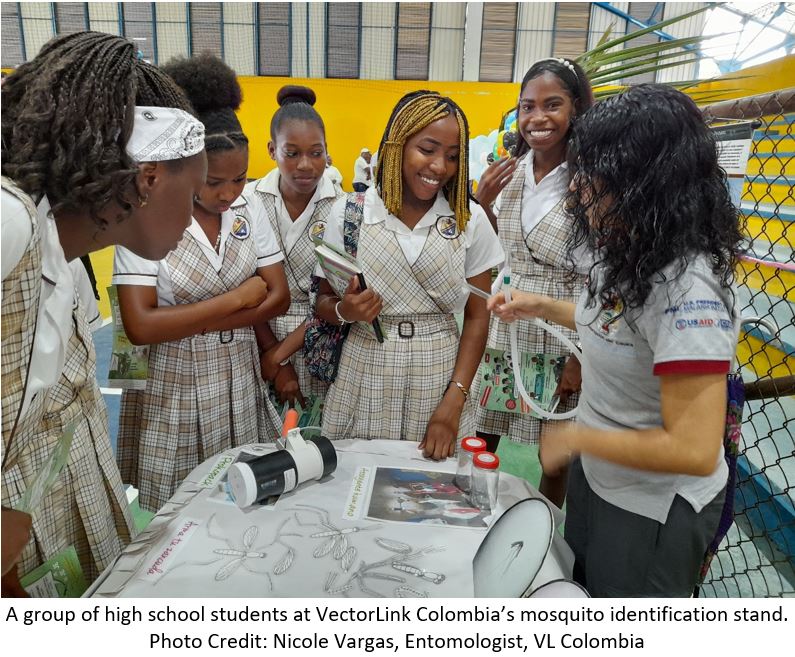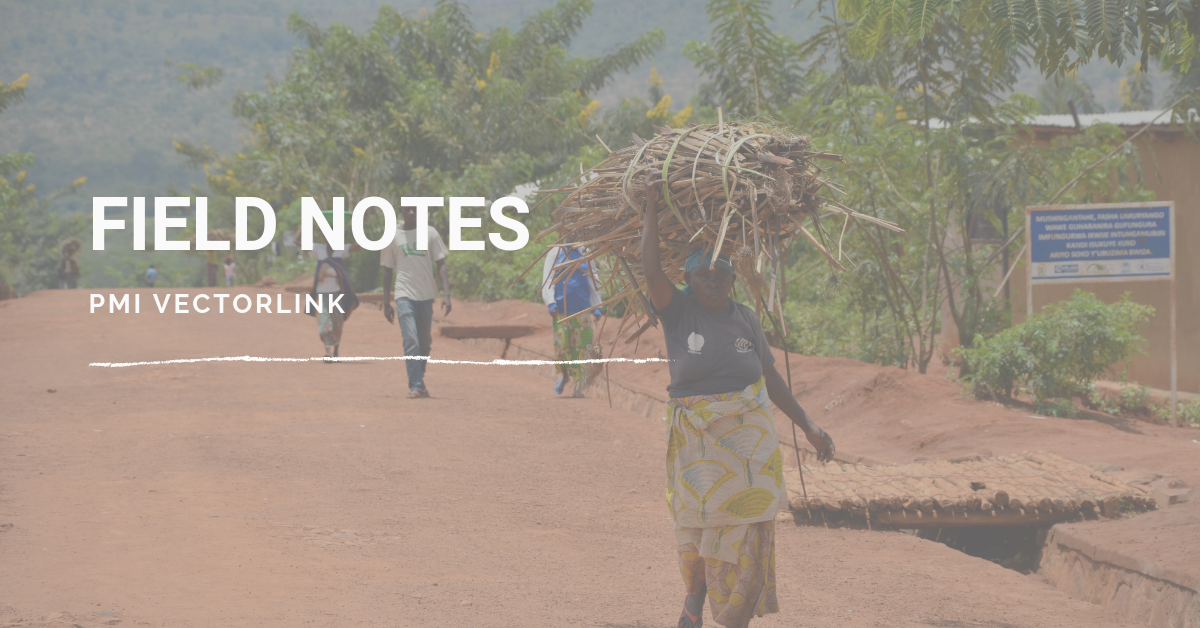Community engagement is vital to malaria control and this week’s Fist Bump, featuring VectorLink Colombia, highlights just that. On World Malaria Day, VectorLink Colombia participated in an event geared toward educating high schoolers about malaria.

The Cauca Department Health Secretariat organized an outreach day aimed at young people in ninth, tenth and eleventh grades across high schools in the municipality of Guapi, on the Pacific Coast of Colombia. Different health entities working within the malaria space in the Cauca department and in the municipality, such as vector-borne disease technicians, the Guapi Municipal Health Secretariat, the bacteriology department of the hospital (Empresa Social del Estado-ESE Guapi) and the VectorLink project, were invited. Three Pan-American Health Organization (PAHO) delegates also participated.
After introductory words, a musical performance with malaria and mosquito-related verses, and a quiz on malaria symptoms, treatment, and mosquito and parasite biology, the students explored different stands where the institutions explained their role in the fight against malaria. VL Colombia built three stands: mosquito identification, an insectarium, and bioassays to show what they do and how they do it.
In the first one, the team explained the different methods used to capture mosquitoes, sharing games that allowed the students to relate taxonomic identification with the species present in the area. In the Insectarium stand, VectorLink had living mosquitoes, allowing the community to see the life cycle and ecology of mosquitoes, along with artificial blood-feeding methods. The team also explained the reason for its existence: living mosquitoes are necessary for bioassays. The bioassays stand explained how the Project performs evaluations of mosquito control measures, using CDC bottle bioassays to evaluate insecticide resistance, cone bioassays of insecticide treated nets, and insecticide residuality on walls.
VL Colombia found the experience engaging. Younger generations and the community in general expanded their knowledge of malaria and recognized the importance of organizations that fight this disease.
Excellent work engaging youth in malaria control, VL Colombia!


